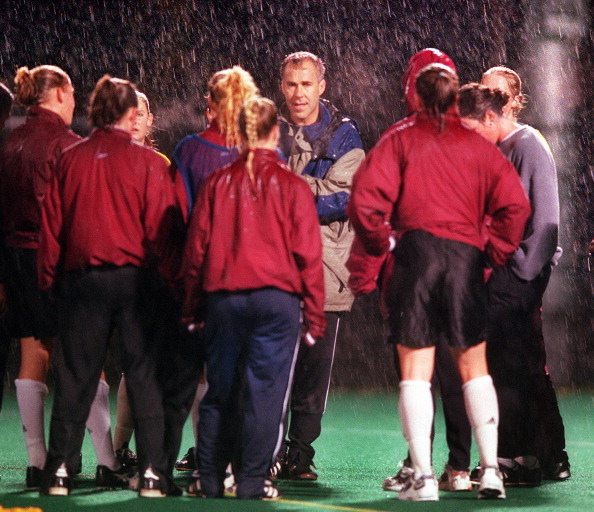An old send-up article purporting to be a “scouting report” of the sex appeal of the then incoming 2012 Harvard women’s soccer team has resurfaced, bringing a sharp rebuke from some of the players who remain on the team, reports say.
The old article made an appearance in the school’s newspaper, the Harvard Crimson. The 2012 “recruiting report” was called a “yearly tradition” that “in sexually explicit terms, individually assessed and evaluated freshmen recruits from the 2012 women’s soccer team based on their perceived physical attractiveness and sexual appeal.”
The Crimson description continued:
In lewd terms, the author of the report individually evaluated each female recruit, assigning them numerical scores and writing paragraph-long assessments of the women. The document also included photographs of each woman, most of which, the author wrote, were culled from Facebook or the Internet.
The author of the “report” often included sexually explicit descriptions of the women. He wrote of one woman that “she looks like the kind of girl who both likes to dominate, and likes to be dominated.”
Each woman was assigned a hypothetical sexual “position” in addition to her position on the soccer field.
The old article went on in that vein at length assessing the sexual prowess and experience of the players.
After the Crimson published its new expose on the article, the members of the women’s soccer team posted a reply to the satirical article to relate their disgust at how they were treated by its anonymous writer.
The rebuke was written by team members Brooke Dickens, Kelsey Clayman, Alika Keene, Emily Mosbacher, Lauren Varela, and Haley Washburn
“We are these women, we are not anonymous, and rather than having our comments taken, spun, and published behind the guise of a fake anonymity offered to us by numerous news outlets, we have decided to speak for ourselves,” the letter said.
It went on to insist that they are used to men acting like ignoramuses. The women said they are used to men acting in such a way saying that “we have come to expect this kind of behavior from so many men, that it is so ‘normal’ to us we often decide it is not worth our time or effort to dwell on.”
Still, the players went on to profess their frustration over the article. “More than anything, we are frustrated that this is a reality that all women have faced in the past and will continue to face throughout their lives,” they wrote. “We feel hopeless because men who are supposed to be our brothers degrade us like this. We are appalled that female athletes who are told to feel empowered and proud of their abilities are so regularly reduced to a physical appearance.
Their response went on to insist they are “beyond hurt” at the way their were treated in the piece and upset that it has taken so many years to apologize for having written it.
We have seen the “scouting report” in its entirety. We know the fullest extent of its contents: the descriptions of our bodies, the numbers we were each assigned, and the comparison to each other and recruits in classes before us. This document attempts to pit us against one another, as if the judgment of a few men is sufficient to determine our worth. But, men, we know better than that. Eighteen years of soccer taught us that. Eighteen years—as successful, powerful, and undeniably brilliant female athletes – taught us that.
The response ended with the hope that the incident would lead to a “productive conversation” about sexism.
We are hopeful that the release of this report will lead to productive conversation and action on Harvard’s campus, within collegiate athletic teams across the country, and into the locker room that is our world. But ultimately, we hope this will catalyze the cultivation of an environment and a culture that strives to lift up all of its members.
Finally, to the men of Harvard Soccer and any future men who may lay claim to our bodies and choose to objectify us as sexual objects, in the words of one of us, we say together: “I can offer you my forgiveness, which is—and forever will be—the only part of me that you can ever claim as yours.”
The women noted that they know what it is like to be “knocked down. To lose a few battles. To sweat, to cry, to bleed.” And also said that “locker room talk” is no excuse for the original piece.
Follow Warner Todd Huston on Twitter @warnerthuston or email the author at igcolonel@hotmail.com.

COMMENTS
Please let us know if you're having issues with commenting.